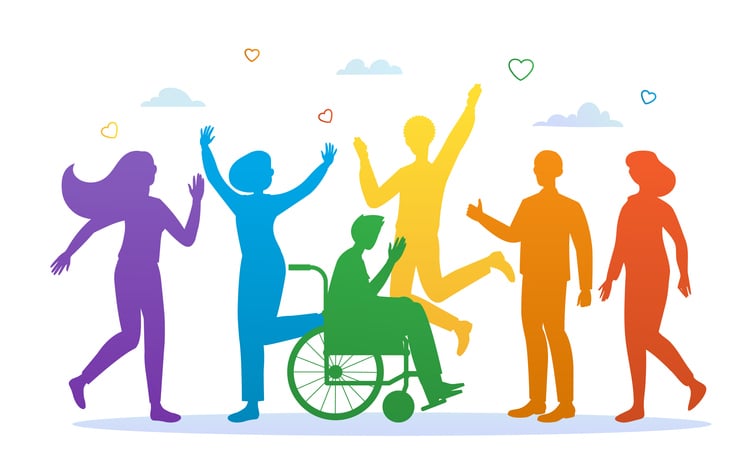Difficult conversations are an inevitable part of the job for any healthcare professional, especially Nurses. Nurses handle patients during serious situations and often encounter patients on some of the worst days of their lives, making these conversations more challenging.
Nurses are often tasked with handling conversations such as a poor prognosis, end-of-life discussions, or delivering difficult news. These conversations can be tricky and complicated by big emotions, so you must have tools and strategies available to help navigate the situation with as much professionalism and empathy as possible. Keep reading for helpful tips and techniques for handling difficult conversations.
Prepare Yourself Before the Conversation
Before engaging in a difficult conversation with a patient or their family, take a moment to check in with yourself and mentally prepare for the discussion. Make sure to acknowledge your feelings and evaluate any biases you may have before starting the conversation.
You should also ensure that you completely understand the topic at hand because patients and families will have questions, and it is important to have the answers or know where to find them before initiating the conversation.
Choose the Right Setting and Set Aside Enough Time
Difficult conversations deserve time and attention. Choose a comfortable, private, and quiet location where you can have an engaged and uninterrupted conversation. To have an effective discussion, you and the patient should feel at ease and comfortable in the situation to freely express thoughts and emotions and have time to ask and answer any questions.
Establish Rapport
Showing empathy, validating emotions or feelings, and letting your patients know you are available to help them in any way they need can help establish rapport and create a trusting Nurse-patient relationship. Establishing rapport can help them better understand, accept, and navigate whatever their healthcare journey has in store.
Listen
Top-notch listening skills are an attribute all Nurses must have. When having difficult conversations, always listen to your patients carefully and do not interrupt them when asking questions or venting their thoughts and feelings.
It is important to allow your patients the space and time to respond to these conversations in any way they may react. Many patients may respond with anger, sadness, or fear, so it is important to demonstrate empathy and understanding through non-verbal cues like body language and maintaining eye contact.
Express Your Empathy and Understanding
Even if you haven’t experienced the same emotions or situations as your patient, phrases like “I can understand how you might be feeling” or “I can see why this is difficult for you” can communicate empathy by acknowledging the patient's emotions and concerns. Connecting with your patients and letting them know you support them during this difficult time is important.
Be Direct and Clear with Information
When having difficult conversations with patients or their families, it is easy for emotions to get in the way of a precise delivery of information. You must deliver the information clearly and directly in language that patients can easily understand.
Try to avoid medical terminology the average person may not understand. Ask if they have any questions to ensure they understand the information. Ask the patient to repeat to you what they heard so you can help them understand the situation entirely.
Follow Up
After having a difficult conversation or delivering difficult news to your patient, follow up to check on their well-being and emotions. During difficult conversations, patients may forget to ask specific questions or have new ones to ask after reflecting.
Follow-up conversations allow patients to discuss their situation further and allow for informed decision-making. Always convey to the patient that you and the rest of the healthcare team are available if they need further assistance.
Manage Your Emotions and Seek Support
Difficult conversations are not only difficult for patients. They may also be difficult for you. It is essential to control your emotions during the conversation, even if your patient becomes upset and expresses strong feelings. Keep calm and professional to help diffuse the situation.
Some conversations can be more complicated than others and it is not unreasonable for some of these conversations to take a toll on your mental health over time. Seek support from a colleague you trust or a personal counselor to help you process your emotions and gain better insight into handling similar situations.
In all challenging conversations, effective communication, active listening, empathy, and a patient-centered approach are essential to reach a collaborative decision and plan of care. Next time you encounter a difficult conversation, reflect on these tips and strategies to navigate the situation smoothly and effectively.


 Nurses must always be prepared to care for patients from all backgrounds, including the LGBTQ+ community. Caring for the LGBTQ+ community requires an educated, compassionate, and inclusive approach. As Nurses, we ensure every patient receives the most personalized and competent care possible. Here are some tips to help you provide better care to the LGBTQ+ community.
Nurses must always be prepared to care for patients from all backgrounds, including the LGBTQ+ community. Caring for the LGBTQ+ community requires an educated, compassionate, and inclusive approach. As Nurses, we ensure every patient receives the most personalized and competent care possible. Here are some tips to help you provide better care to the LGBTQ+ community. Health disparities are the health differences experienced between different groups based on race, ethnicity, disability, sex/gender, socioeconomic status, educational level, and more. Unfortunately, the LGBTQ+ community is no exception to health disparities.
Health disparities are the health differences experienced between different groups based on race, ethnicity, disability, sex/gender, socioeconomic status, educational level, and more. Unfortunately, the LGBTQ+ community is no exception to health disparities.  A positive workplace culture is essential for Nurses to provide excellent patient care. In addition, a positive workplace culture on Nursing units can positively impact job satisfaction, staff retention, and patient outcomes.
A positive workplace culture is essential for Nurses to provide excellent patient care. In addition, a positive workplace culture on Nursing units can positively impact job satisfaction, staff retention, and patient outcomes. Healthcare should be accessible to everyone regardless of socioeconomic status, age, gender, race, or ethnicity. Unfortunately, many people across the nation struggle to access affordable and reliable healthcare. Health equity can only be achieved when every person, regardless of the situation, has a fair and equal opportunity to be as healthy as possible.
Healthcare should be accessible to everyone regardless of socioeconomic status, age, gender, race, or ethnicity. Unfortunately, many people across the nation struggle to access affordable and reliable healthcare. Health equity can only be achieved when every person, regardless of the situation, has a fair and equal opportunity to be as healthy as possible.